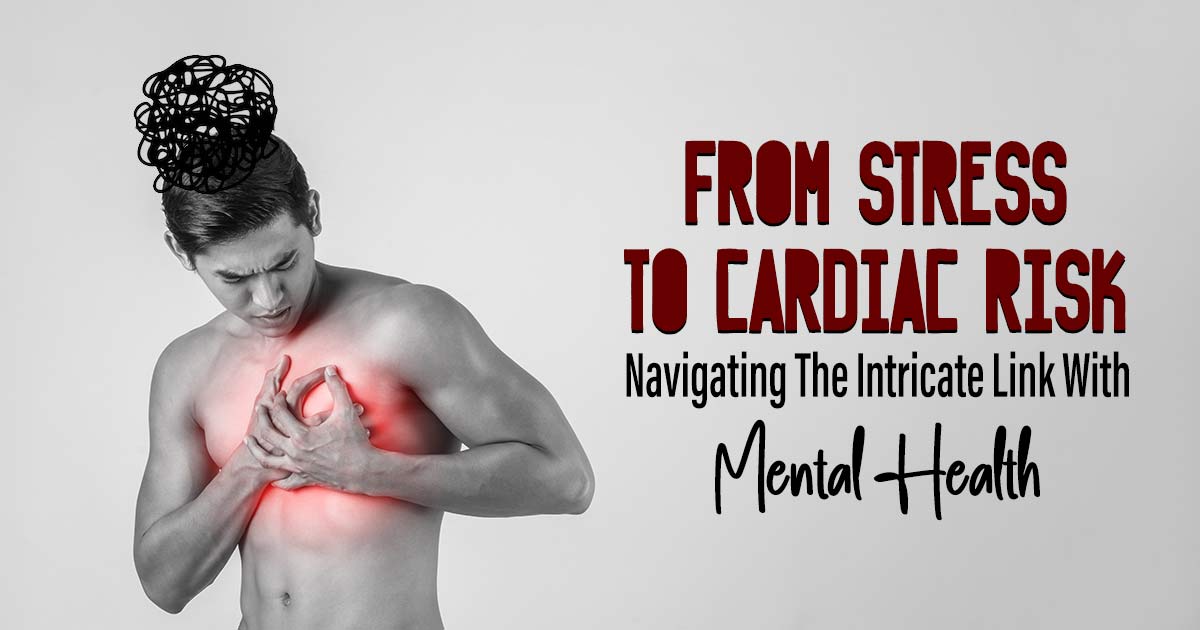Cardiac arrest is an abrupt and sometimes deadly event mainly associated with the malfunction of the heart. However, recent research found that there is a complex link between mental health and cardiac arrest.
Can Mental Health Lead To Heart Attacks?
Research and healthcare professionals have become increasingly aware of the intricate connection between mental health issues and heart attacks. Anxiety, depression, as well as stress are major causes of cardiovascular problems, which could also trigger heart attacks in susceptible persons. Release of hormones such as cortisol and adrenaline by chronic stress can be detrimental to cardiovascular complications, especially those related to heart problems.
The autonomic nervous system which controls involuntary actions such as blood pressure regulation and heartbeat may be affected by long-term mental health issues. A system imbalance results in arrhythmias or increasing chances of sudden death through cardiac arrest. Therefore, it is vital to understand the link between mental health and cardiac arrest (particularly how psychological health affects the cardiovascular structure as a whole) in order to identify underlying psychological problems.
Can Recurrent Cardiac Arrests Lead To Mental Illness?
Mental illnesses are often caused by post-cardiac arrest trauma that affects an individual deeply. Cardiac arrests can lead to anxiety, depression, or PTSD (post traumatic stress disorder) since they involve life-threatening situations. Patients might feel afraid, worried, or insecure all the time, which creates a vicious circle of worsening mental illness and enhanced chances for more frequent incidents of cardiac failure.
The psychological fallout from surviving cardiac arrests must not be underestimated. Holistic care should be prioritized by healthcare providers so that physical and emotional well-being are both taken care of. The process may involve psychosocial support programs, counseling sessions, and rehabilitation services aimed at helping survivors cope with emotional consequences after experiencing heart attack while reducing chance for subsequent occurrences.
How Managing Mental Wellbeing Prevents Sudden Cardiac Arrests
Understanding the dual nature of cardiac health and mental well-being underscores the necessity for managing mental health to avoid cardiac arrest. Modifiable lifestyle risk factors such as balanced diet, regular exercise, mindfulness, meditation and other stress reduction techniques have direct impact on both cognitive and cardiovascular health.
Healthcare providers should integrate mental health screening and intervention into cardiac care protocols in order to provide a more comprehensive approach. Recognizing and dealing with signs of mental illness is key TO preventing heart attacks. This should be further fostered by public awareness campaigns that promote people taking proactive steps toward managing their own psychological state as part of their general well-being.
The relationship between mental health and cardiac arrest is a complex interplay that needs to be addressed by both healthcare professionals and the society at large. Mental health influences cardiovascular health and vice versa, thereby offering opportunities for integrative care strategies. Therefore, viewing physical well-being from an all-inclusive standpoint will necessitate connected treatments based on relationships between mind and body and can lead to more effective prevention of cardiac arrests.


